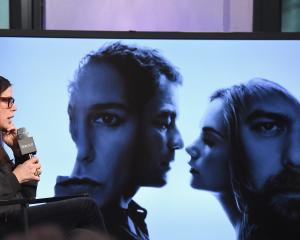Anne of Cleves was born in Dusseldorf.
Everybody knows that - everybody, of course, but the members of the University of Canterbury University Challenge team.
That's right, and by golly when they come up against the University of Otago team in the charmingly dinky, slightly nerdy and somehow strangely satisfying game show, our very clever students will pounce on such ignorance and take the points.
That will happen.
University Challenge begins again this Saturday on Prime, the second series to broadcast after a long hiatus from 1989 until last year.
No, we did not win last year, but boy we thrashed all comers back in the 1970s when Peter Sinclair was the host.
And probably last year we were foxing, just so we could come in under the radar this year and take the spoils.
That will happen.
University Challenge has the sort of format a show of this genre needs, with such excellent aspects as ''a starter for 10''.
Yes, Canterbury picked up that 10 as series 16 begins, with one bright spark in their team knowing that Hamlet's father in the Shakespeare play of the same name was of the same name - Hamlet.
The team knew the country of birth of Catherine of Aragon - Spain, of course.
But the country of birth of Anne of Cleves was a different matter.
''France'' the team confidently called.
Wrong! There's the weakness, Otago. Recognise it and use it to your advantage.
Also on an academic note, and also on Prime, comedian Bill Bailey (of the likes of Black Books and QI) has a good go at bringing the name Alfred Wallace back to the forefront of evolutionary history.
Wallace, a British naturalist, explorer and biologist, independently conceived the theory of evolution through natural selection, and his paper on the subject was jointly published with Charles Darwin's writings.
''He's the missing link in the story of evolution,'' Bailey says in Bill Bailey's Jungle Hero on October 29.
''I'm on a mission to get Wallace the recognition he deserves.''
Bailey visits London's Natural History Museum, where he finds a statue of Darwin, but none of Wallace.
''Wallace should be up here alongside Darwin,'' he says.
''Wallace's name has been lost from history.''
Bailey sets out to retrace the steps of the naturalist who survived man-eating tigers, head-hunting tribes, pirates and sinking ships as he collected his evidence in far-flung countries in the heyday of Victorian scientific adventuring.
He follows in Wallace's footsteps to Borneo and the Spice Islands to find birds of paradise, frogs that fly and kangaroos that climb trees.
Just the sort of crossover between science and gung-ho activity one needs at 7.30pm on a Thursday night.
- Charles Loughrey





